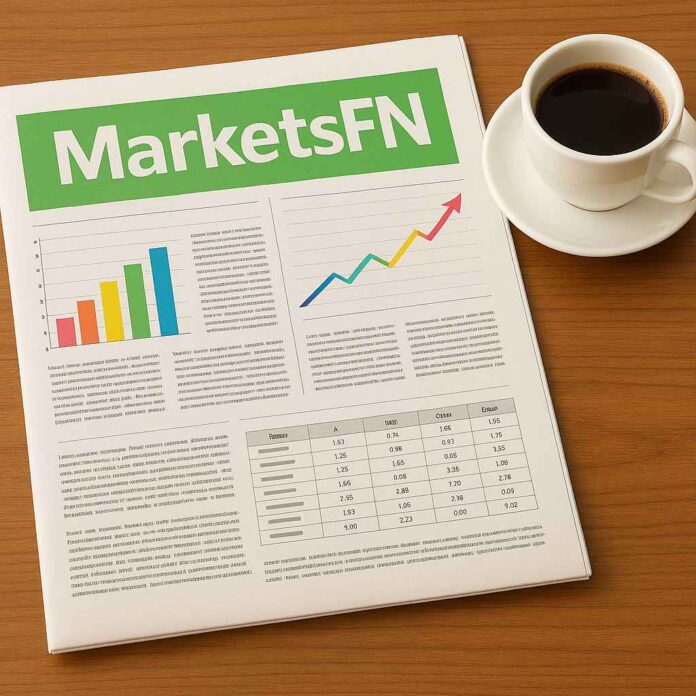In a move signaling regulatory flexibility for emerging energy derivatives, the U.S. Commodity Futures Trading Commission’s (CFTC) Divisions of Market Oversight and Clearing and Risk issued a no-action letter on September 30, 2025, granting relief from certain swap data reporting and recordkeeping requirements. The letter responds to a request from Electron Exchange DCM LLC—a designated contract market (DCM)—and Electron Exchange DCO LLC—a derivatives clearing organization (DCO)—which plan to list cash-settled binary options tied to electricity and power markets. This targeted exemption allows the entities and their participants to forgo compliance with specific swap rules for these transactions, without facing enforcement actions, provided they adhere to the letter’s terms. As energy markets grapple with volatility from renewables integration and grid demands, this decision could accelerate innovation in binary options—contracts that pay a fixed amount if a condition (e.g., power price thresholds) is met—while underscoring the CFTC’s pragmatic approach to fostering competition without compromising oversight. For traders and exchanges, it’s a welcome green light; for regulators, a calibrated step in balancing innovation with systemic safeguards.
Binary options in commodities like electricity offer binary outcomes—win big or get nothing—making them attractive for hedging price spikes or speculating on supply disruptions. Electron Exchange’s entry targets a niche with growing relevance amid climate-driven shifts, but swap classification had previously imposed burdensome reporting to swap data repositories (SDRs). The no-action position sidesteps this, akin to prior relief for similar DCMs and DCOs, potentially lowering entry barriers for energy-focused products.
The No-Action Letter: Key Details and Scope
Issued jointly by the CFTC’s Market Oversight and Clearing and Risk divisions, the letter provides narrow relief: No enforcement recommendations for non-compliance with swap recordkeeping or SDR reporting on binary option transactions executed on Electron Exchange DCM LLC and cleared via Electron Exchange DCO LLC. This applies solely to cash-settled binaries underlying electricity/power commodities, reflecting the request’s specifics.
The rationale? Treating these as swaps under Dodd-Frank could stifle liquidity in a nascent market segment. By classifying them as futures-like for reporting purposes, the CFTC eases administrative loads—such as daily trade reconciliations and audit trails—without altering core protections like position limits or clearing mandates.
Scope limitations are clear: Relief is “narrow” and comparable to precedents for other DCMs/DCOs, ensuring consistency. It doesn’t exempt anti-fraud rules or margin requirements, maintaining market integrity. Electron Exchange must still report under futures regimes if applicable, and the letter can be revoked if risks emerge.
This isn’t blanket deregulation; it’s targeted pragmatism. As CFTC Chair Rostin Behnam noted in recent testimony, no-action letters bridge gaps where rules lag innovation, especially in commodities vital to energy transition.
Context: Binary Options in Energy Markets and Regulatory Evolution
Binary options—also called “digital” or “all-or-nothing”—have roots in European exchanges but gained U.S. traction post-2010 amid commodity volatility. In electricity/power, they hedge against extreme events like heatwaves spiking demand or renewables curbing supply. Electron Exchange, a Texas-based platform, aims to list these for regional hubs (e.g., PJM or ERCOT), tapping a $100 billion+ U.S. power futures market.
Historically, CFTC scrutiny was intense: 2012 rules classified many binaries as swaps, imposing SDR reporting to enhance transparency post-2008 crisis. But energy-specific nuances—short-dated contracts, physical delivery ties—prompted relief requests. Similar letters for ICE and CME in 2020-2023 set precedents, exempting non-swap-like binaries.
In 2025, this fits a broader thaw: The CFTC’s Project 2020 (now evolved) emphasizes “technology-neutral” rules, with recent approvals for crypto derivatives and carbon credits. Amid Biden-era focus on climate finance, easing for green-energy tools aligns with net-zero goals, potentially boosting trading volumes by 20-30% in power binaries, per industry estimates.
Critics, including consumer advocates, worry about retail speculation risks—binaries’ high leverage can amplify losses. The CFTC counters with safeguards like suitability checks and position limits.
Implications for Market Participants and Innovation
For exchanges like Electron, this is a launchpad: Lower compliance costs could attract hedgers (utilities, generators) and speculators, enhancing liquidity in underserved power markets. Traders gain simpler execution, with binaries offering precise risk transfer—e.g., $1 payout per MWh above $50 thresholds.
Broader impacts:
- Energy Sector: Accelerates hedging for renewables volatility, supporting grid stability as U.S. adds 50 GW solar/wind annually.
- Regulators: Signals willingness to adapt rules, potentially inspiring similar relief for ag or metals binaries.
- Investors: Opens opportunities in niche ETFs or futures funds tracking power prices, amid $2 trillion global energy transition investments.
Risks persist: Without SDR data, systemic monitoring dips, though clearing via DCO mitigates defaults. The CFTC’s “narrow” caveat ensures oversight evolves with usage.
Looking Ahead: A Balanced Path for Derivatives Innovation
The no-action letter exemplifies the CFTC’s dual mandate: Promote markets while protecting participants. As Electron rolls out products, watch for volume spikes and any mid-course adjustments. In a year of rate cuts and election uncertainty, this relief could stabilize energy trading, underscoring regulation’s role in innovation.
For the full release: https://www.cftc.gov/PressRoom/PressReleases/9135-25
Disclaimer The content on MarketsFN.com is provided for educational and informational purposes only. It does not constitute financial advice, investment recommendations, or trading guidance. All investments involve risks, and past performance does not guarantee future results. You are solely responsible for your investment decisions and should conduct independent research and consult a qualified financial advisor before acting. MarketsFN.com and its authors are not liable for any losses or damages arising from your use of this information.





